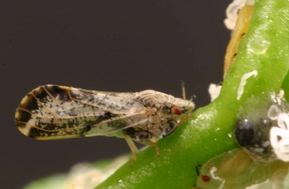Invasive Pests Imported to Florida Could Threaten Crops

The psyllid pest causes citrus greening, a disease that kills orange tress
According to a recent NPR article, invasive pests inadvertently imported to Florida as cargo could be threatening crops across the state. NPR reports two arthropods in particular, the brown marmorated stink bug and the psyllid, are having an effect on the state’s agriculture industry.
The brown marmorated stink bug was reportedly discovered in Allentown, PA, but has now spread nationwide and is currently posing a threat to Florida’s vegetable crops and the state’s ornamental plant industry. With the bug being studied at a biosecurity lab at the University of Florida, researchers feel confident they’ll be able to “identify natural predators and parasites that will help them control the stink bug,” the article states.
However, NPR reports the psyllid has, thus far, defied scientists’ best efforts to control the bug. Marjorie Hoy, an entomology professor at the University of Florida, says, since the discovery of the psyllid eight years ago, Florida has lost a “good portion” of its crops. “From 860,000 acres,” she says, “I think we’re down to roughly 600,000 acres or less.”
According to article, part of the reason the psyllid is so dangerous to crops is because it, along with the bacteria it carries, causes citrus greening, a disease that kills orange trees and makes the fruit unusable. In order to combat the disease, Hoy reports citrus growers are using pesticides and nutrient sprays. “It’s a very sad situation,” she says, “because Florida citrus was one of those premier examples of how to grow citrus with the least number of pesticides.”
As farmers across the country struggle with wet weather conditions as they begin to harvest crops, growers in the state of Florida are doing their best to combat the nearly two dozen new arthropods that have reportedly arrived this year.